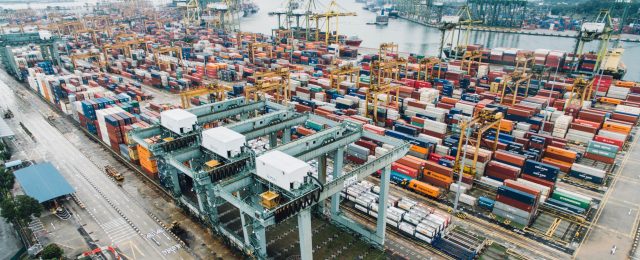
About
Transport Benchmark
WBA’s fourth Climate and Energy Benchmark measures and ranks the world’s 90 influential transportation companies on their low-carbon transition.
The Transport Benchmark is the first comprehensive assessment of companies in the sector that combines the ACT assessment and the just transition and social assessment to provide an overall score and ranking. By considering social and decarbonisation issues together, the benchmark mobilises stronger action needed to hold companies accountable on contributing towards a low-carbon transition that leaves no one behind.
The benchmark, developed in partnership with CDP, assesses 90 freight and passenger companies across air, rail and road, as well as sea freight (shipping) transport companies and their targets and performance against their 1.5°C (2.7°F) pathways to see if they are on track to meet the Paris Agreement goal.
The companies in this benchmark play a vital role in our societies and global economy, connecting the flow of people and goods across countries and around the world. Transport companies are heavily reliant on other sectors for their low-carbon transition: the sector is more exposed to the oil and gas industry than any other, with more than 90% of its energy coming from crude oil-derived products.
As a high-emitting sector that accounted for a staggering 37% of total greenhouse gas (GHG) emissions among all end-use sectors, the transport sector’s role in ensuring if the temperature goal of the Paris Agreement can be achieved is undeniable. Transport companies must accelerate action now towards a just, low-carbon transition.
In order for the world to successfully decarbonise by 2030, the top transportation companies around the world need to step up in creating measurable and transparent goals to progressing on climate goals and human rights practices. Our Climate and Energy Benchmark will cover rankings of 450 of the world’s most influential, companies in high-emitting sectors including automotive, electric utilities, oil and gas, transport, and real estate and construction. These sector benchmarks will be regularly updated.
About our partners
About CDP: CDP is a global non-profit that runs the world’s environmental disclosure system for companies, cities, states and regions. Founded in 2000 and working with more than 590 investors with over $110 trillion in assets, CDP pioneered using capital markets and corporate procurement to motivate companies to disclose their environmental impacts, and to reduce greenhouse gas emissions, safeguard water resources and protect forests. Over 10,000 organizations around the world disclosed data through CDP in 2020, including more than 9,600 companies worth over 50% of global market capitalization, and over 940 cities, states and regions, representing a combined population of over 810 million. Fully TCFD aligned, CDP holds the largest environmental database in the world, and CDP scores are widely used to drive investment and procurement decisions towards a zero carbon, sustainable and resilient economy. CDP is a founding member of the Science Based Targets initiative, We Mean Business Coalition, The Investor Agenda and the Net Zero Asset Managers initiative. Visit cdp.net or follow us @CDP to find out more.
About ACT: ACT is a joint voluntary initiative recognised by the UNFCCC secretariat Global Climate Agenda and supported by the French government. It aims at driving companies’ climate actions to align their strategies with low-carbon pathways. ACT provides an accountability framework to assess how companies’ strategies and transition plans contribute to the Paris Agreement mitigation goals. ACT takes an integrated and forward-looking approach to measure quantitatively and qualitatively decarbonisation performance across the past, present and future focusing on the major emissions sources in the business value chain. Publicly available assessment methodologies are sector specific responding to each sector’s own transition challenges. A complementary method that equips less mature businesses to develop robust low carbon strategies and implement relevant transition plans. Click here for more.
Press toolkit
Please find below the link to download the full press release along with supporting images below.
Download the full ranking image of 90 companies here.
Press release here